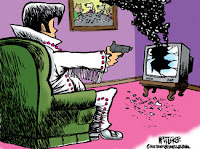Mark gets us started with a question about GOING GOING GONE:
Can you tell us about the audition process? How did you find the actors and how did you select them? What were you looking for? I sort of have a limited sense of how it happens for tv and movies but not for theater.
We hired a terrific casting director, Michael Donovan. I met with him and discussed how I envisioned the characters. He then reached out to agents, managers, and I think listed the qualifications in breakdown services and selected a group of actors for each part he thought would be right.
We then had casting sessions at the theatre with me, the director, and producers. Michael did an amazing job. We cast the whole play in only two casting sessions.
One difference between casting theatre and television is that for TV the actor stands only a few feet from the people doing the casting. For theatre the casting people sit way back in one of the back rows. They want a better sense of how the actor will project. Projection isn’t important on film. Everyone is miked.
From -30-:
Why don't you direct your own play? It's not like you have no experience.
At some point I will, and I have directed one acts. But entire plays are a different animal and I find I’m learning a ton from Andy Barnicle.
 In TV everything has to move quickly. You block the show the first day and by mid-afternoon have to be ready for a runthrough. Four days later you shoot the show. For plays you generally have a month of rehearsals So there are time management issues, dealing with all the tech demands – I’m sure I could do it, but would probably make mistakes that would hurt the play. Better to let someone who really knows what he’s doing direct it than myself. Plus, it's nice to have an outside eye evaluating the material.
In TV everything has to move quickly. You block the show the first day and by mid-afternoon have to be ready for a runthrough. Four days later you shoot the show. For plays you generally have a month of rehearsals So there are time management issues, dealing with all the tech demands – I’m sure I could do it, but would probably make mistakes that would hurt the play. Better to let someone who really knows what he’s doing direct it than myself. Plus, it's nice to have an outside eye evaluating the material. My technical skill set is dealing with cameras. I’m sure if Andy had a multi-cam pilot that needed directing, he would ask me to step in.
Peter asks:
Is there any movie that you hated the first time you saw it but grew on you in subsequent viewings to the point it became a favorite? I hated Rosemary's Baby the first time I watched it. I thought it was slow and dull. But it's now one of my all time favorites?
THE CAINE MUTINY. Saw it as a kid and was bored out of my mind. Boring talk talk talk. Then I saw it again as an adult, and whoa! What a great picture and an absolutely riveting performance by Humphrey Bogart. (He played this insane ship captain who has a meltdown on the witness stand. Very similar to Trump's debate performance.)
Same for THE AMERICANIZATION OF EMILY. It’s Paddy Chayefsky at his best, but I was too young to appreciate that when I first saw it as a kid.
And a third is THE TIME MACHINE. Meh at first; super cool thereafter.
More often however, movies that I originally loved don’t hold up upon later viewing. The Blake Edwards PINK PANTHER movies leap to mind.
What movies do you guys love that you originally didn’t care for?
Joe has a Vin Scully question on this, his final weekend of calling Dodger baseball.
Since you love sitcoms and Vin Scully, what did you think about Vin's sitcom narration career on the immortal "Occasional Wife"?
Since most people are not familiar with OCCASIONAL WIFE, it was a romantic comedy sitcom in the mid-‘60s. Michael Callan needed to have a wife to impress people in his office so worked out a financial deal with neighbor Patricia Harty to pose as his wife. Scully was the narrator.
I watched the show when it was on because of Vin Scully and remember enjoying it. Recently, I re-watched the pilot and was pleasantly surprised. It had sort of a faux Neil Simon feel to it. Here’s the pilot. See for yourself.
What is your Friday Question? Now it’s off to the theatre.











































